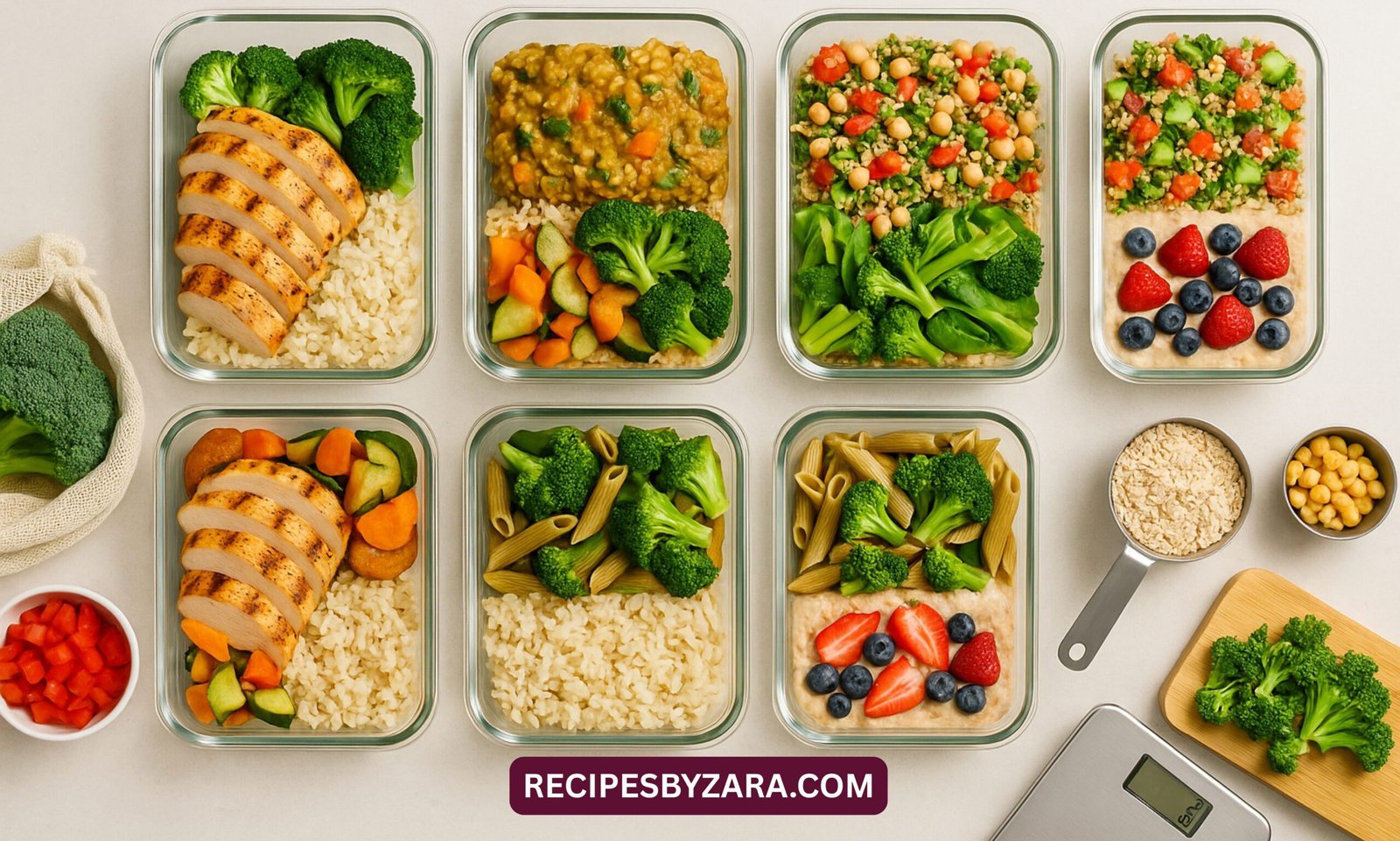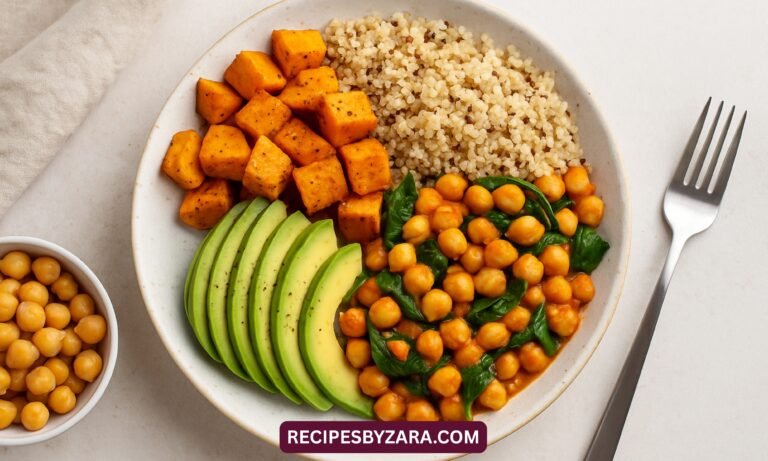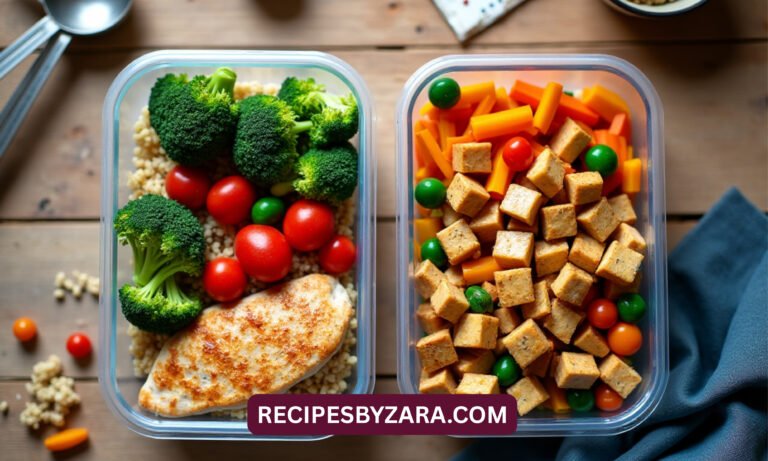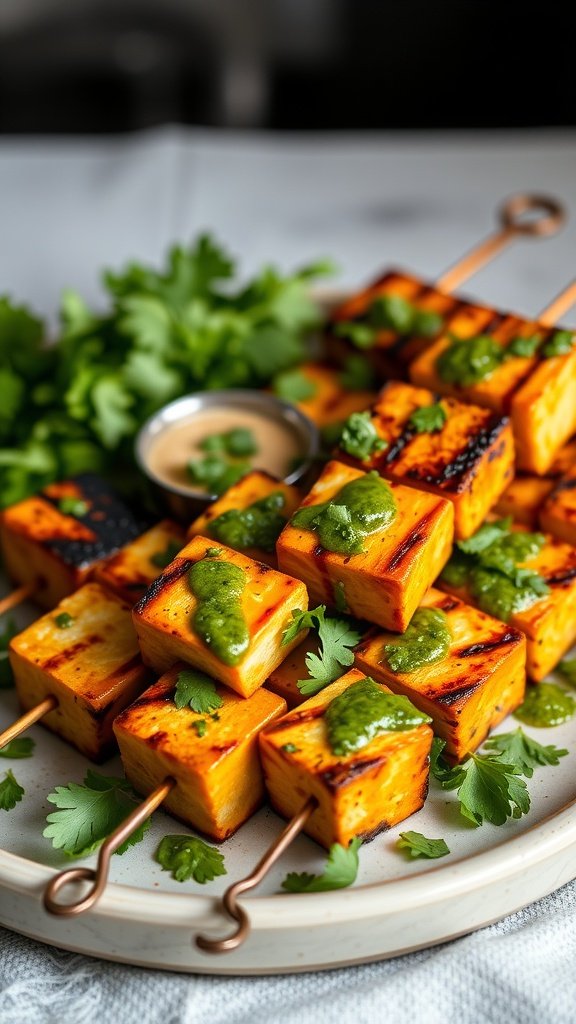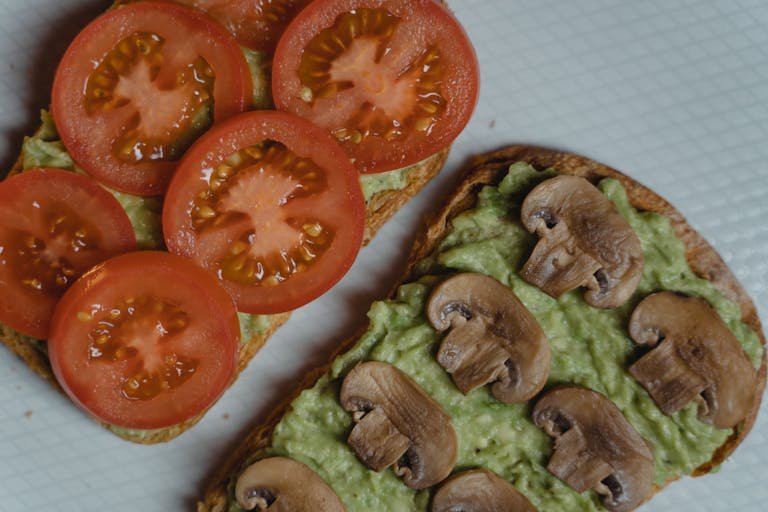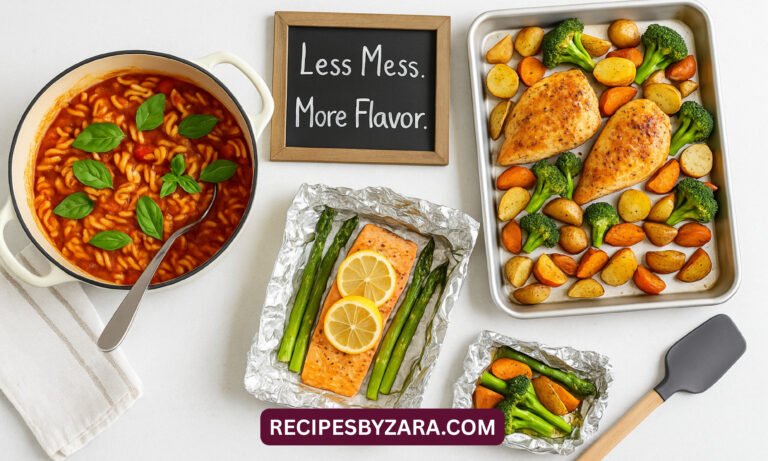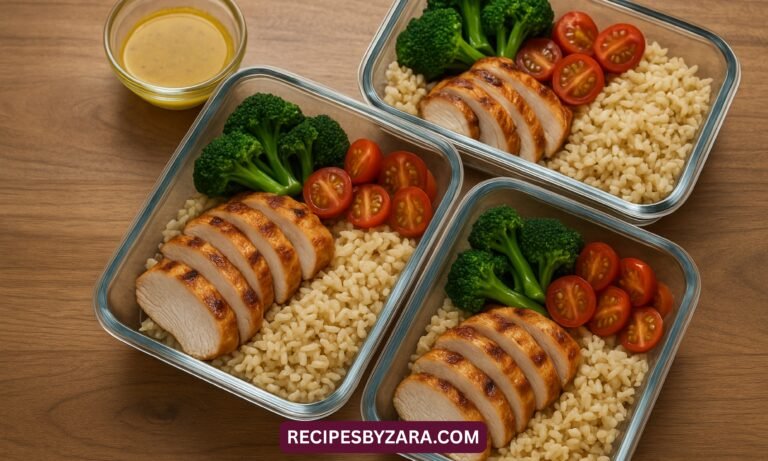Weekly Meal Prep Plan A Practical Guide to Save Time Eat Healthier and Stress Less
Simplify your routine with a realistic weekly meal prep plan that saves time, reduces stress, and supports healthy eating. Perfect for families, weight loss goals, or busy lifestyles.
Planning your meals in advance can be one of the smartest habits you adopt for your health and your wallet. A good weekly meal prep plan eliminates the daily stress of deciding what to eat and helps you stay on track with your nutrition goals. Whether you’re cooking for one or feeding a household, meal prep keeps your week running smoothly.
When meals are already prepped and ready to go, you’re far less likely to rely on fast food or takeout. Instead, you can enjoy home-cooked meals made with wholesome ingredients that align with your lifestyle and budget. Plus, prepping in bulk saves time and helps reduce food waste.
In this guide, you’ll learn how to create a realistic weekly meal prep plan that fits your needs. From shopping and storage to a sample schedule and helpful tips, everything here is designed to make the process simple, flexible, and sustainable.
1. Why You Need a Weekly Meal Prep Plan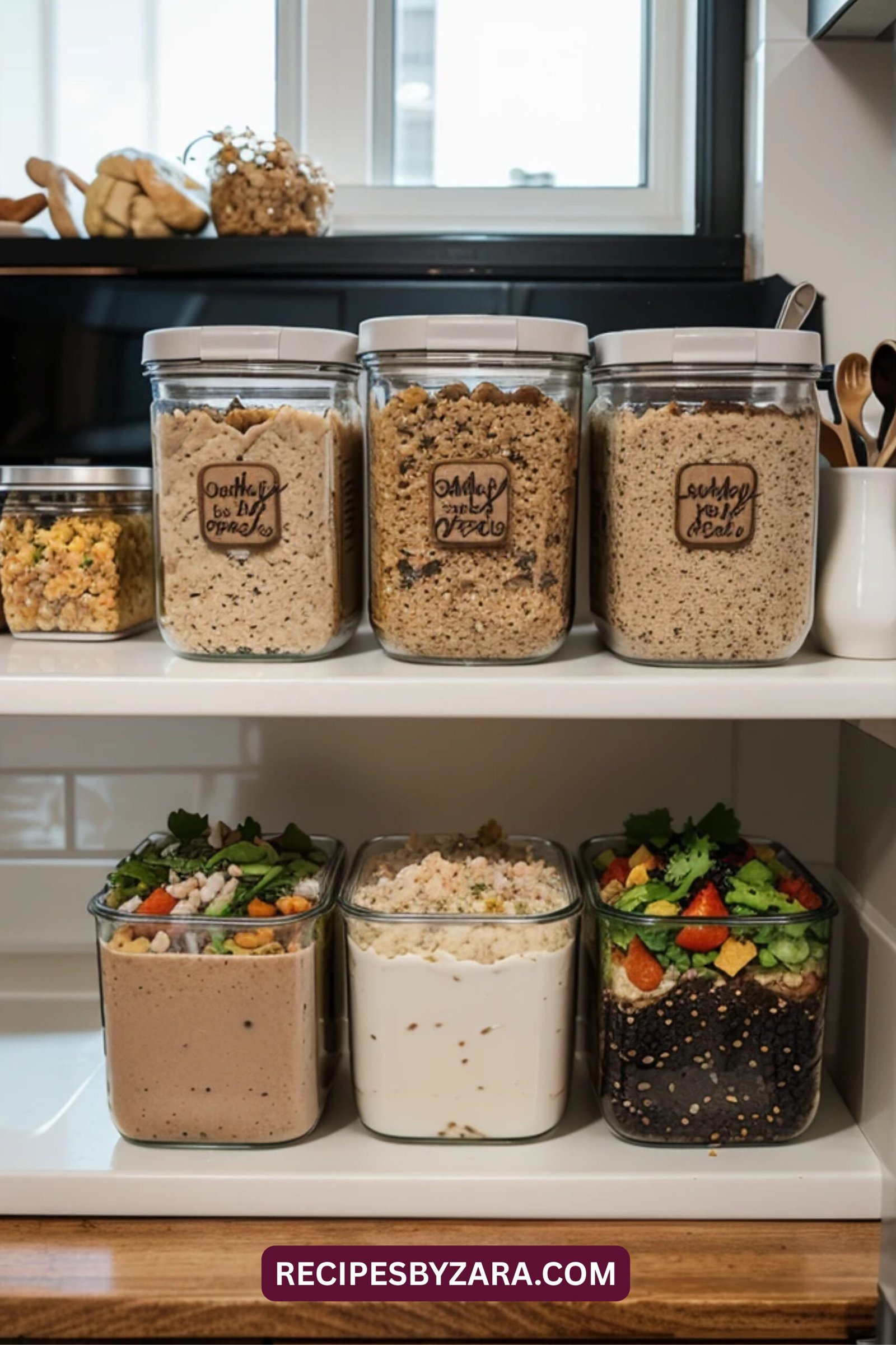
A structured meal plan makes your week more predictable and organized. With meals already planned and prepared, you don’t have to think about what to cook or worry about last-minute grocery store runs. This kind of planning frees up mental space for other priorities in your day.
Another key benefit is that it keeps your nutrition consistent. You’re more likely to eat balanced, home-cooked meals when they’re already prepped and ready. This helps with weight management, improved energy levels, and even better sleep. A proper weekly menu planner gives you the foundation for better choices.
Budgeting is also easier with meal prep. When you plan ahead, you shop with intention and buy only what you need. This means less waste and more savings. Whether your goal is eating clean or feeding a family on a budget, a budget meal prep plan works.
Lastly, having a plan reduces decision fatigue. Instead of constantly thinking, “What’s for dinner?” you simply follow your plan. With a clear meal prep schedule, you can approach your week with more ease and confidence.
2. Essentials to Build a Successful Weekly Meal Prep Plan
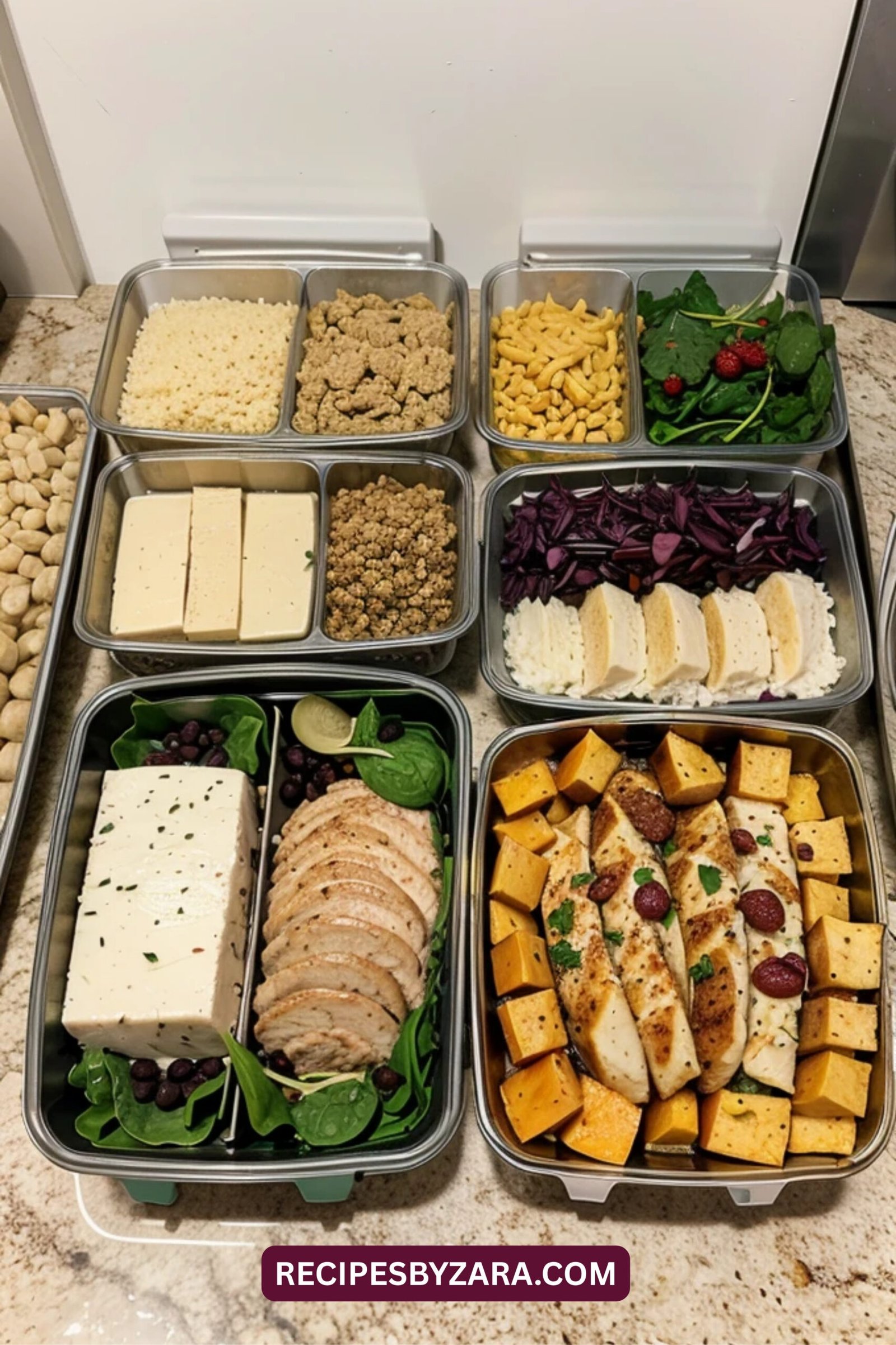
Start with planning your meals for the week. Take 15 to 20 minutes to decide what you’ll eat for breakfast, lunch, dinner, and snacks. Keep your schedule in mind some nights may require quicker meals or grab-and-go options. Choose meals that are simple to make and store well.
Once your menu is ready, create a shopping list based on those meals. Organize the list by category: produce, protein, pantry, dairy, frozen. This makes your grocery trip quicker and helps avoid forgetting key ingredients. Your smart grocery list is a crucial part of the prep process.
Pick ingredients that serve multiple purposes. For example, a batch of grilled chicken can be used in wraps, salads, and rice bowls. Sweet potatoes can be roasted for dinner and mashed for lunch. This type of cross-use is the secret to a time-saving and flexible meal planning routine.
Use a printable planner, a phone app, or even a whiteboard on your fridge to keep track of your meals. When you have a visual system, it’s easier to stick to your plan and avoid food waste. Your weekly cooking system begins with structure.
3. Best Foods to Prep for the Week
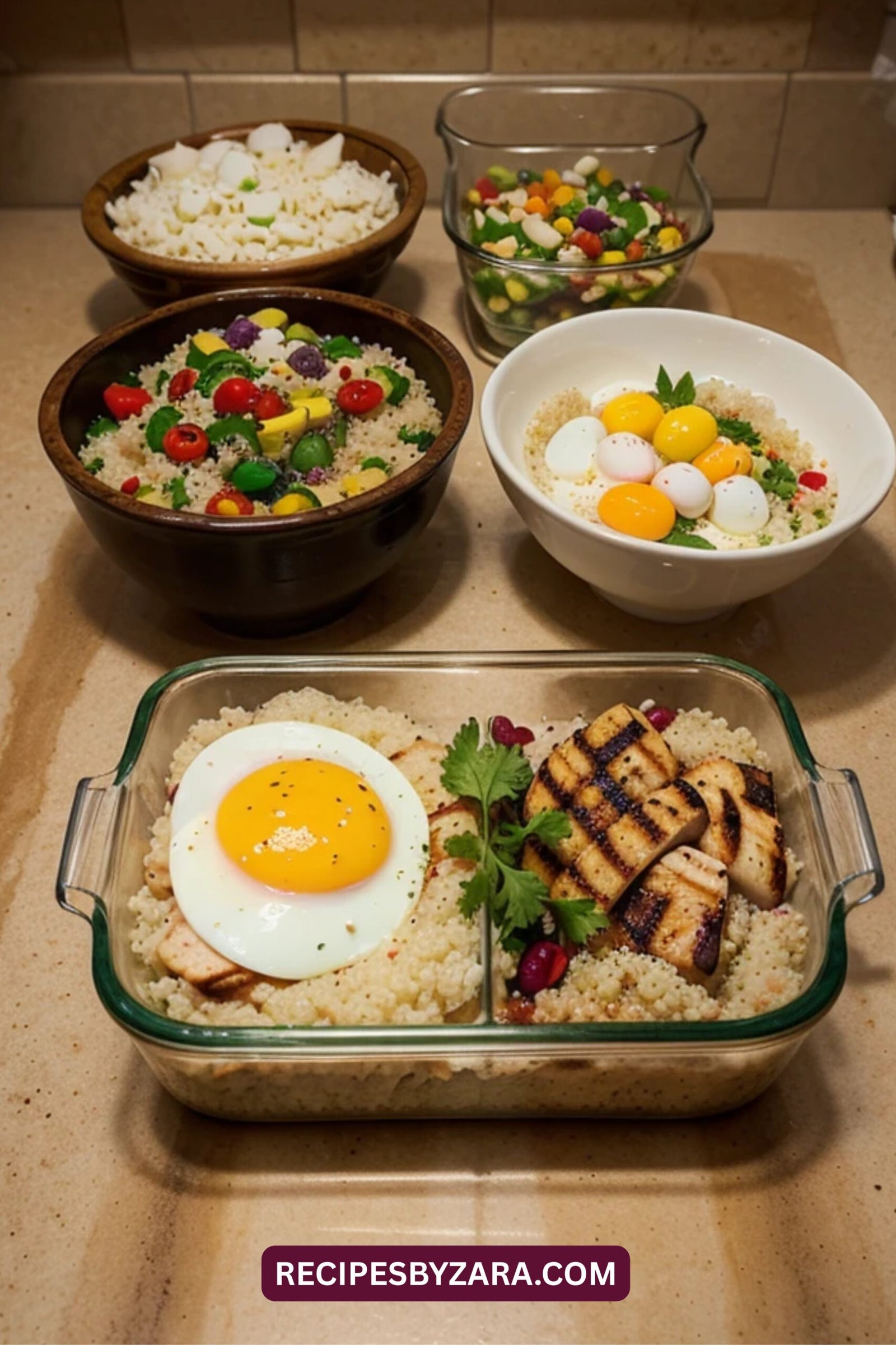
The best foods to prep are those that store well, reheat easily, and offer a balance of macronutrients. Start with proteins like grilled chicken, lentils, tofu, or hard-boiled eggs. These are the building blocks of your meals and form the base of most protein meal prep schedules.
Add in some smart carbohydrates. Brown rice, quinoa, oats, and sweet potatoes are hearty, nutritious, and budget-friendly. These grains provide energy and can be paired with nearly any protein or veggie. They’re key to making batch cooking weekly plans effective.
Don’t forget vegetables. Choose ones that hold up well in the fridge, such as carrots, spinach, bell peppers, and cabbage. Chop and portion them in advance, or roast them in batches. This ensures you always have vegetables ready for your meals.
Snacks are also worth prepping. Items like hummus, yogurt, chopped fruits, trail mix, or boiled eggs make healthy snacking easier. With these on hand, you’re less tempted by less nutritious choices, and your healthy food prep workflow stays intact.
4. Sample Weekly Meal Prep Plan (Balanced + Beginner Friendly)
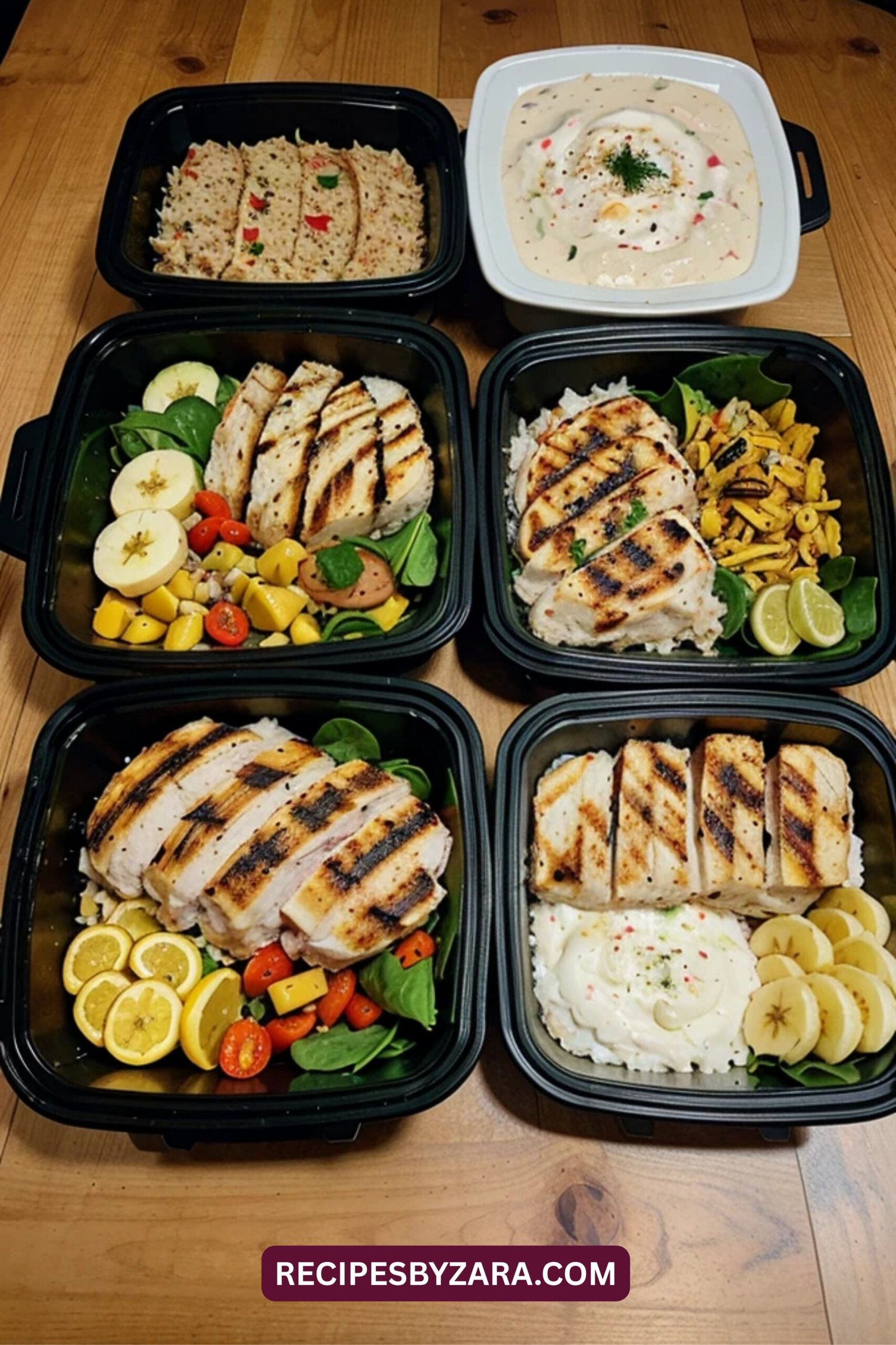
To bring it all together, here’s a simple and balanced weekly meal prep plan you can follow or customize based on your preferences. This plan is beginner-friendly and includes meals that are easy to prep and store.
Day 1: Start your day with overnight oats made with almond milk and topped with banana slices. For lunch, have a grilled chicken salad with spinach, cherry tomatoes, and balsamic dressing. Dinner can be a quick veggie stir-fry with brown rice and tofu. Add a boiled egg as your snack.
Day 2: Have Greek yogurt with fresh berries and oats for breakfast. Lunch might be a tuna wrap with spinach and hummus. For dinner, make a sweet potato and chickpea curry served over rice. Snack on trail mix or a sliced apple with peanut butter.
Day 3: Scrambled eggs and whole wheat toast make a simple breakfast. A lentil quinoa bowl with roasted veggies works great for lunch. Dinner could be pasta with homemade marinara and roasted zucchini. Add a side of yogurt for your snack.
Repeat this structure across the week using similar ingredients in different combinations. You can also include freezer meals or leftovers to reduce cooking during busier days. This flexible format supports a meal plan for busy weeks without getting repetitive.
5. Time-Saving Tips to Make Weekly Meal Prep Easier
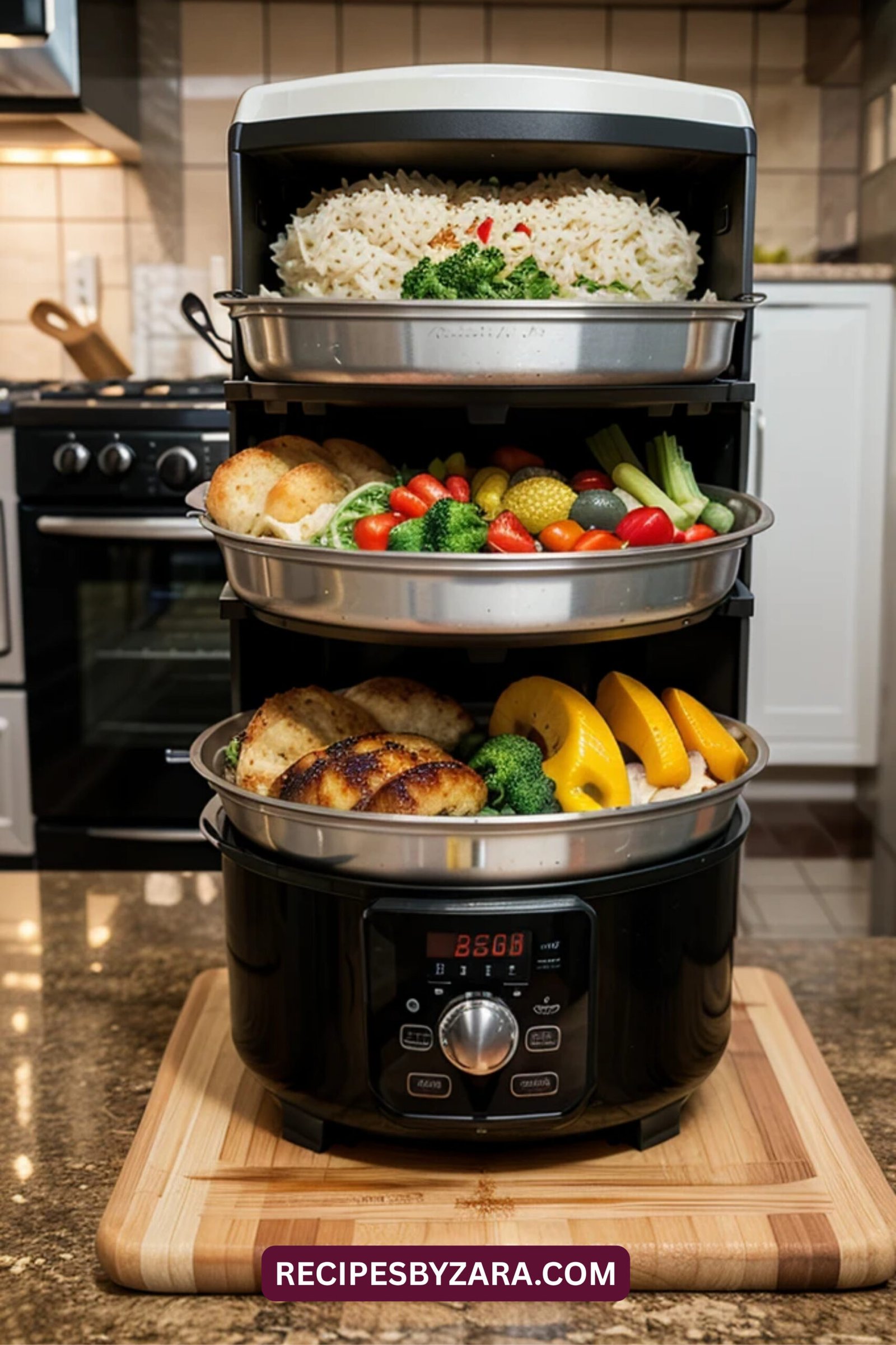
Start by picking one day each week as your prep day. Sunday works well for many, but choose what fits your lifestyle. Block out 1–2 hours to prep ingredients or cook full meals. Use timers to keep things on track, and prep multiple items at once for efficiency.
Batch cooking is your best friend. Roast a tray of vegetables, cook a large batch of rice, and grill or bake your proteins together. Let things cool before storing them to avoid soggy textures. This step is at the heart of any solid meal prep guide for beginners.
Store ingredients separately instead of mixing everything in advance. This gives you flexibility to create different meals from the same base ingredients. For example, rice, chicken, and broccoli can become a burrito bowl one day and a stir-fry the next.
Label your containers with the meal name and date. This helps with rotation and ensures nothing goes to waste. Clear containers are best so you can see what you have. A little organization goes a long way in sticking to your weekly food prep strategy.
6. Mistakes to Avoid When Planning Weekly Meals
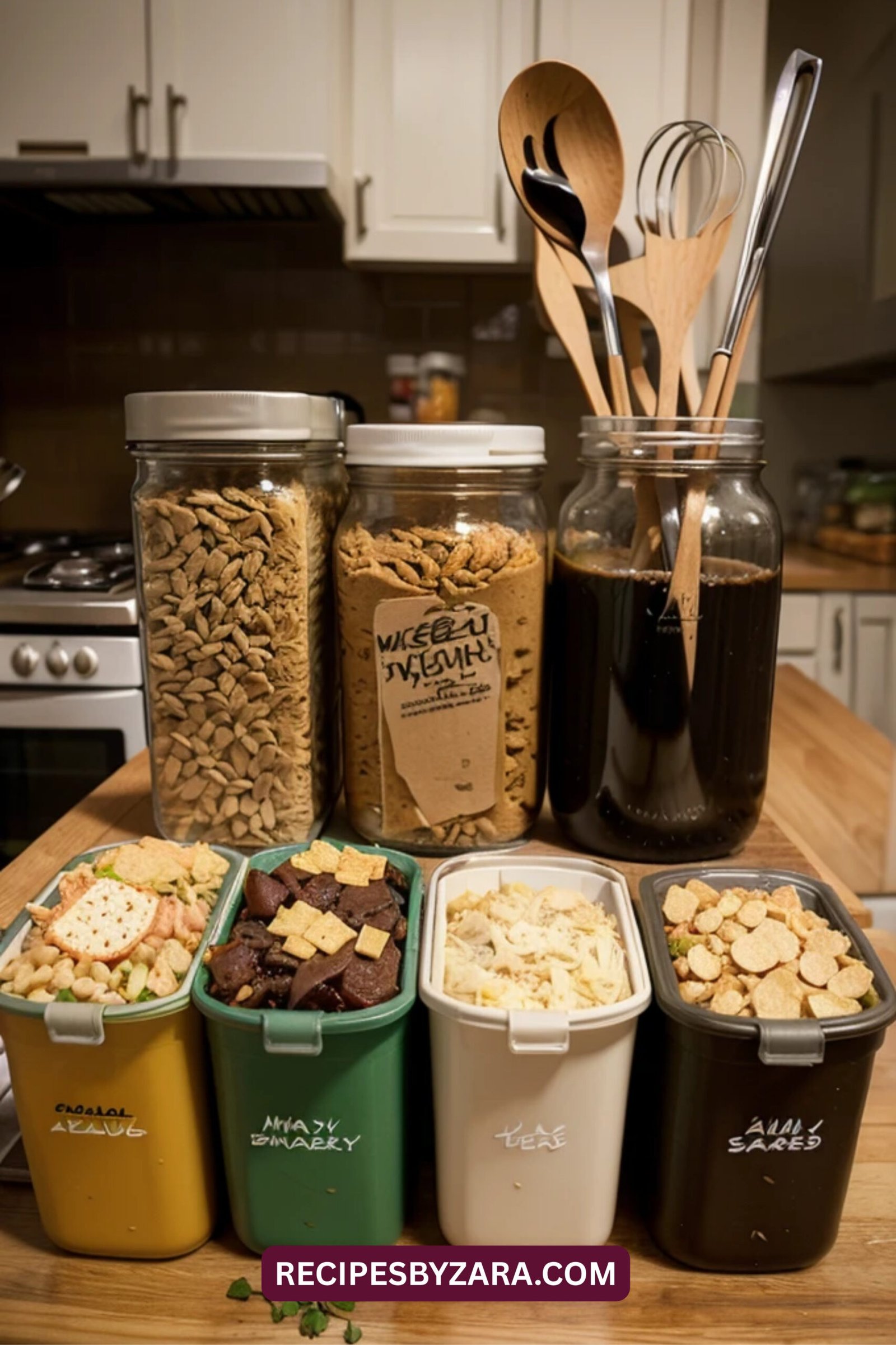
One common mistake is making the plan too complicated. Trying to prep seven completely different meals can be overwhelming. Instead, start with two or three base recipes and rotate ingredients for variety. Keep it simple, especially if you’re new to meal planning for beginners.
Skipping snacks is another issue. You might plan all your main meals but forget quick bites. This leads to unnecessary snacking or extra grocery trips. Always include options like fruits, boiled eggs, or nuts in your weekly meal prep plan.
Not checking your pantry before shopping is a missed opportunity. You might already have rice, spices, or frozen veggies at home. Reviewing what you have helps cut costs and avoid duplicate purchases, which supports your budget friendly grocery list.
Lastly, failing to prep for real-life events can cause your plan to fail. If you know you have a busy evening, don’t plan a complicated dinner. Instead, assign that night a leftover or freezer meal. Being realistic is key to successful and consistent prep meals without stress.
FAQs
Q1: How many meals should I prep for in a week?
Most people prep for 3 to 5 days at a time. This usually includes lunch and dinner, with breakfast and snacks being easier to assemble fresh. The right number depends on your schedule, fridge space, and comfort level.
Q2: What day is best to do weekly meal prep?
Sunday is a popular choice, but any day that fits your routine will work. The goal is to pick a day where you have 1–2 focused hours. Having a consistent prep day helps build long-term habits.
Q3: Can I prep different meals for each day?
Yes, but keep it manageable. Many successful meal preppers rotate 2–3 recipes throughout the week. This balances variety with simplicity, especially if you’re short on time.
Q4: How do I keep prepped meals fresh all week?
Store meals in airtight containers and keep sauces separate. Use glass or BPA-free plastic. Most fridge-stored meals last up to 4 days. Freeze anything you won’t eat by then to maintain quality and safety.
Q5: Is it okay to freeze some meals on a weekly plan?
Absolutely. Freezer meals are great backups for busy nights. Just remember to label them and include a few in your weekly cooking system so they rotate into your plan.
Q6: How do I plan meals for a family on a budget?
Choose simple, versatile ingredients like beans, rice, eggs, and seasonal vegetables. Cook in bulk and use leftovers creatively. Stick to your grocery budget planner and avoid recipes with too many specialty items.
